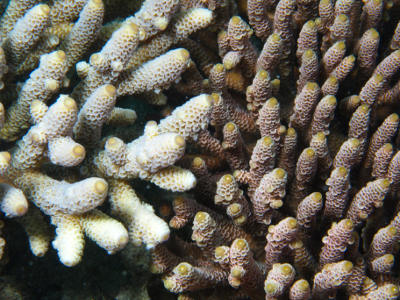Using AI to control energy for indoor agriculture
30 September 2024
Published online 15 May 2016
Scientists crack the genetic code for climate adaptive corals.

© Australian Institute of Marine Science
Coral bleaching occurs when the relationship between coral and its macroscopic algae is upset by high temperatures and poor water quality. The algae, which convert sunlight into food, turn toxic. Under stress, the coral loses the algae and the animal slowly starves.
Now, a research team at the Australian Institute of Marine Science, investigating how to help corals adapt on the Great Barrier Reef, has found that some corals produce more antioxidants than others, and therefore cope better1.
The team conducted three genetic analyses of the common coral Acropora millepora: a gene-by-environment association study across 12 latitudes, the natural bleaching responses of coral sampled in 2006 and 2009, and a laboratory controlled stress experiment measuring the levels of the antioxidant ubiquinol produced under high temperature.
The results reveal two genetic signatures that account for differences in antioxidant capacity and environmental stress tolerance.
The discovery is a step towards identifying wild coral colonies with the best chance of coping with future ocean conditions. It also helps conservationists prioritise areas of reef to protect, opening up possibilities for transferring genetically resilient coral to other places, and creating genetically superior corals through selective breeding or genetic modification.
“Identifying these markers is an important part of the biological toolbox we are developing to enhance coral resilience,” says Madeleine van Oppen, senior principal research scientist, Australian Institute of Marine Science. “Given the dramatic decline in coral cover over the past 10 years, coral may need some assistance to ensure that it survives into the future.”
doi:10.1038/nmiddleeast.2016.61
Stay connected: